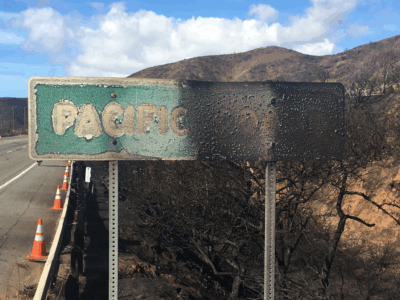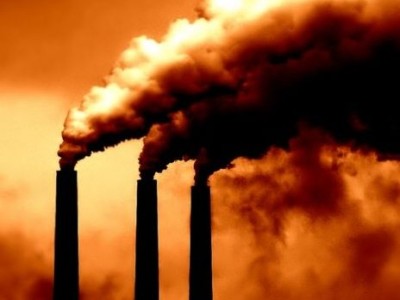The Dirty Dozen Rides Again?
Climate Change and Political Consequences
April 22, 2020 will mark the 50th Anniversary of the first Earth Day in 1970. The 1962 publication of Rachel Carson’s Silent Spring, as well as the 1969 oil spill in Santa Barbara and the dismal air quality of Los Angeles, raised American environmental consciousness, but it was Earth Day that accelerated political engagement. Twenty million people participated in the first Earth Day, which was co-chaired by Senator Gaylord Nelson, a democrat, and Pete McCloskey, a republican. In 1970, the environment was a bipartisan issue.
But it wasn’t until after Earth Day – the 1970 congressional elections to be exact – that environmentalism became a true political force. Here’s how Denis Hayes, the Earth Day national coordinator, described it for the 40th Anniversary:
[T]he environment returned to national prominence in the fall of 1970. The Earth Day organizers jumped into the Congressional elections, seeking to defeat a “Dirty Dozen” of incumbent Congressmen. The targets were selected because they had abysmal environmental records, but also because they were in tight races and were from districts with a major environmental issue that voters cared about.
The first of the seven Congressmen we took out that fall was George Fallon from Baltimore. Representative Fallon was chairman of the House Public Works Committee, the “pork” committee, and a powerful opponent of mass transit. Politicians of all stripes took notice: If Fallon was vulnerable, everyone in politics was vulnerable.
In that single primary election (won by a young upstart named Paul Sarbanes), Earth Day’s organizers had made “the environment” a voting issue.
I raise this now, well before the 50th Earth Day and the 2020 elections, because climate change, despite being an existential threat, has not become a voting issue in the United States. To my knowledge, no incumbent has won or lost a race in a primary or general election based primarily on the issue of climate change. Until that happens, climate denial and climate inaction engender insufficient political liability to result in political action.
Despite fires in the west, hurricanes in the east, drought in the south, and multiple other plagues around the country, the Democratic National Committee refused to hold a presidential climate debate, and the Republican party – an entire political party in the year 2019 – led by a president who derides it as a Chinese hoax while promoting coal, denies its existence and impact. Until there is a political price, until members of Congress lose their jobs because of their inaction, the climate will continue to change but policy inaction will not.
Denis Hayes and the original Earth Day creators changed the political calculus around environmental issues. Seven of the so-called “Dirty Dozen” lost their seats. In 1970, Vietnam, civil rights, and many other issues were at the forefront, just as today, terrorism, inequality, and homelessness vie for attention. But in 1970, environmental issues became voting issues.
Can 2020 be a climate change turning point? Is it time for a “Denier Dozen?”
Reader Comments
2 Replies to “The Dirty Dozen Rides Again?”
Comments are closed.







In the 2018 Congressional elections in the United States, climate change was a major issue in many races, particularly coastal districts that are vulnerable to sea level rise. Climate minded Democrats beat climate-insincere Republicans in coastal districts such as the 48th and 49th districts of California, where Harley Rouda and Mike Levin beat Dana Rohrabacher and Darrel Issa. Climate change is the issue that made California’s entire coastline blue. On the East Coast, in the 1st District of South Carolina, Joe Cunningham beat a climate-denying Republican in large part due to climate change. Another example is in the Florida Keys, in Florida’s 26th district, where Debbie Mucarsel-Powell beat Carlos Curbelo. This election was about climate change, and the incumbent Republican was the closest thing the US Congress ever had to a Republican who was sincere on climate, but he was not as strong as a Democrat on this issue, and lost because of it. These races show that climate change already is an issue that can turn elections in the United States Congress, and officeholders and policymakers already have to pay attention.
Ken:
I consider you a friend and appreciate reading your commentary from your new perch in Academia. You know I support the clean energy and climate laws enacted during Brown’s tenure.
But I’m hard pressed to take too seriously the full throated statements like this from a former Brown senior staffer whose administration actively supported legislation to prohibit the state Air Board and local air districts from regulating GHGs directly from oil refineries. That’s just straight up bad policy.
Further, I struggle to understand how you, your former boss, and some of your colleagues continue to make bold statements about the need for climate axtion but at the same time steadfastly refused to help codify Brown’s own stated policy to reduce petroleum by 50% in the state by 2030 under SB 350/2016, and actively stalled for over a year passage of 100% clean energy law in order to leverage unrelated and exceedingly bad public policy.
There’s an old saying that those who cannot do, teach. I’m very glad you are teaching now, but the rest of us in state government are still grappling with the serious mistakes the Brown Administration made to cower from hard policy making needed to clean our air and make our planet cooler.
Leadership is more than making pithy blog posts, public pronouncements, and attending self-adulating conferences abroad. It’s about the very hard day to day decisions that get made in places like the State Capitol where leadership is on the line.
When that test is applied, I’m afraid your administration was found wonting. we, and California, are the worse for it.
thanks for letting me comment.
Kip